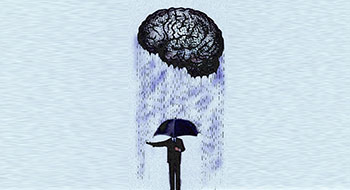

The first time I heard a co-worker use the term mental health day was back in the mid-1990s, when I was teaching at an elementary school in Toronto.
The Grade 1 teacher used the term loosely, with air quotes.
While she may have simply wanted to escape her rug rats for a day, she may have really needed to take care of her mental state.
It’s never questioned when we take time off to rest for physical ailments—a flu or a cold, or when we’re struck with a migraine. Why wouldn’t we do the same for our mental health? Check that. Why wouldn’t employers encourage us to do the same for our mental health?
We’re all getting busier; smartphones have made our work lives run 24/7. We’re overworked and stressed out. In fact, in 2014, the American Psychological Association and the American Institute of Stress identified job pressure as the top cause of stress. And that could mean co-worker tension, difficult bosses and work overload.
“Traditionally, we’ve been allowed to take a day off for [illness], we’ve been allowed to take a day off for vacation,” says Dr. Jacqueline Brunshaw, a psychologist with Cleveland Clinic Canada. “To date, there’s no real permission to take [a day] off for however one would describe mental health,” she says, adding that could mean being tired (due to overtime or staff shortages) or simply needing to get away from an irritating situation.
While we may not have direct permission, everyone takes mental health days. When I need one (typically two to three a year), I call in to say I’m not feeling well. But I don’t actually come out and say, “I’m not feeling mentally up to snuff.” I have to lie. I have no choice, because employers and society, in general, aren’t understanding.
Employees hesitate to tell their bosses, “I’m feeling burned out,” for example, says Brunshaw. “[Mental health] is just not given the same weight [as being physically ill]. It’s like complaining or like you can’t measure up. If someone is in line for promotion, is that [attendance report] going to sit in his or her HR file?”
There’s guilt, too, says Brunshaw. “As they struggle with [taking a fake sick day], they get more anxious and more depressed and more stressed. It’s working against each one of us.”
Brunshaw recommends re-examining the whole structure of employee sick days, suggesting employers cease differentiating between sick days and mental health days and simply call them wellness or health days. Something neutral and generic.
That makes perfect sense to me. No more lying.
As Brunshaw says to her patients, “We can’t cut health off at the head.”
I agree. Headless employees aren’t productive.
Brooke Smith is managing editor of Benefits Canada.
Get a PDF of this article.
